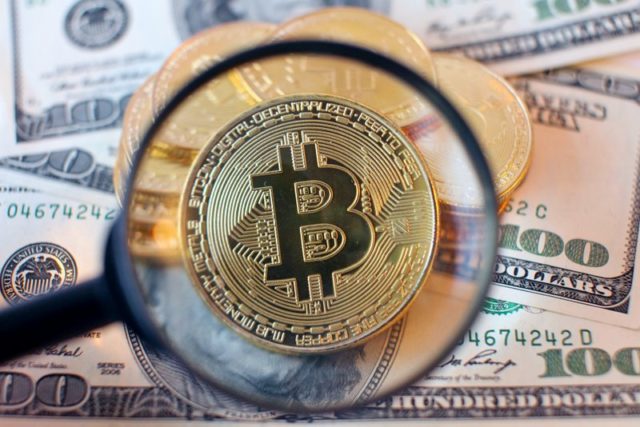President Joe Biden said in an interview that aired on Sunday that the US military would defend Taiwan if the Chinese military launched an invasion of the island.
The statements on CBS’s “60 Minutes” reiterate Biden’s earlier pledge to defend Taiwan, although he has now specified that “US men and women” would be involved in the effort.
Asked whether “US forces, men and women, would defend Taiwan in the event of a Chinese invasion”, in a perspective that US officials privately fear is becoming more likely, the US leader replied: “Yes”.
It’s not the first time Biden has gone further in his public comments than the US’s longstanding approach to “strategic ambiguity” when it comes to Taiwan’s defense. More recently, during a visit to Tokyo in May, the president stated that the US would intervene militarily if China tried to take Taiwan by force.
The White House was quick to play down Biden’s earlier comments on Taiwan, reiterating that US policy has not changed, and on Sunday, “60 Minutes” reported receiving a response similar to those said by the leader in his interview.
China quickly condemned the president’s comments and repeated his warning that the country reserves the “option to take all necessary measures” to defend its territorial integrity and sovereignty.
“The US remarks seriously violate the one-China principle and the provisions of the three US-China joint communiqués. It is also a serious violation of the important commitment made by the US side not to support Taiwan’s independence.”
“This sent a serious wrong signal to the separatist forces of Taiwan independence. China expresses its strong dissatisfaction and firm opposition and has made serious representations on the side of the US,” Mao added.
Observations come at a time of high tension
Taiwan is less than 177 kilometers from the Chinese coast. For more than 70 years, the two sides were ruled separately, but that hasn’t stopped the Communist Party of China from claiming the island as its own – despite never having controlled it.
Chinese leader Xi Jinping has claimed that “reunification” between China and Taiwan is inevitable and has refused to rule out the use of force. Tensions between Beijing and Taipei are at their highest level in decades, with the Chinese military holding major military exercises near the island.
Under the “One China” policy, the US recognizes China’s position that Taiwan is part of the country, but has never officially recognized the Communist Party’s claim to the autonomous island of 23 million people.
The US supplies Taiwan with defensive weapons, but remains intentionally ambiguous about whether it would intervene militarily in the event of a Chinese attack.
Biden repeated his commitment to these policies in the “60 Minutes” interview.
“We agreed to what we signed a long time ago. And that there is a ‘one China’ policy, and Taiwan makes its own judgments about its independence. We are not moving – we are not encouraging your independence. That is your decision,” she stated.
But asked if US forces would defend the island, he said yes: “Yes, if indeed there was an unprecedented attack.”
Biden’s comments on Sunday are likely to spark further speculation about possible changes in US policy on Taiwan, but analysts noted that his choice of words offered room for interpretation and was not unambiguous.
Drew Thompson, a visiting senior fellow at the National University of Singapore’s Lee Kuan Yew School of Public Policy, explained that “we are always tempted to read too much into the president’s statements,” but Biden’s view hasn’t really changed.
Thompson, who is a former US Department of Defense employee, further opined that the specific nature of any US position does not necessarily mean US military personnel on Taiwanese soil.
In the event of any Chinese attack on the island, the Pentagon would present Biden with “a spectrum of options” for deploying US forces, the expert continued.
Using naval resources or airpower in an offshore role, even cyber assets to thwart a possible Chinese invasion, or just a US show of force in the region could be among these options.
Biden’s latest statement could put further pressure on US-China relations following strong opposition from Beijing to US House Speaker Nancy Pelosi’s visit to Taipei in August.
Beijing responded to his trip by suspending all dialogue with the US on important issues ranging from climate change to military relations, while carrying out extensive military exercises in Taiwan.
The Taiwan issue was also among the main talking points during last week’s meeting between Xi and Russian President Vladimir Putin at a regional summit in Uzbekistan, with the two agreeing that Chinese sovereignty over the island is a “line red” non-negotiable.
Xi also said he appreciates “Russia’s adherence to the ‘one China’ principle” and stressed that Taiwan is part of the country.
Speculation about Chinese preparations
Debates over the likelihood of a possible Chinese invasion have intensified after Russia’s attack on Ukraine, with many analysts indicating that Beijing will likely be carefully monitoring the situation in Europe.
The US intelligence community has made clear its belief that China is actively trying to build an army capable of dominating Taiwan – even in the face of US support for the island.
Last week, CIA Deputy Director David Cohen said that while Xi has not made the decision to invade Taiwan, he wants China’s People’s Liberation Army to have the ability to take control of the island by force until 2027
The US intelligence community does not believe Beijing has made a decision on whether or not to proceed, Cohen revealed, adding that Xi is believed to have preferred to gain control of Taiwan through “non-military means”.
The CIA official also stated that the agency is paying close attention to the lessons China is learning from the war in Ukraine.
“We are looking very carefully at how the Chinese are understanding the situation in Ukraine – how the Russians behaved, how the Ukrainians behaved and the implications of that for their own plans, as they can be in Taiwan,” Cohen continued.
Source: CNN Brasil
I’m James Harper, a highly experienced and accomplished news writer for World Stock Market. I have been writing in the Politics section of the website for over five years, providing readers with up-to-date and insightful information about current events in politics. My work is widely read and respected by many industry professionals as well as laymen.







